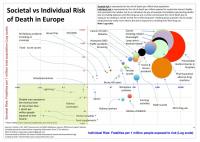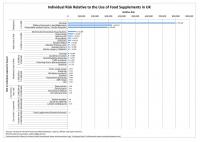Here is a list of the supplements I take.
-
EPA/DHA: 2g/d
-
Vitamin D: 20.000iu/w
-
Magnesium: 400mg/prebed
-
Melatonin: 0.25mg/prebed
-
NAC: 2x 500mg/d
-
ALA: 2x 250mg/d
-
CoQ10: 150mg/d
-
TMG: 2x 1g/d
-
b-Alanine: 2x 400mg/d
-
L-Citrulline: 1000mg/d
-
L-Carnitine: 2x 500mg/d
-
Prebiotics: 5g inulin/acacia fiber + 5–10g psyllium/d
-
SAMe: 400mg/d
-
Taurine: 1g/prebed
-
Niacin: 2x 500mg/d
I know there are many antioxidants in my stack. Although I think the dosages are low/reasonable, what do you guys think? I am open for any criticism, feedback, different opinions. Humanity is all about collective learning ![]()
I wrote an article about why exactly I chose these supplements. You can read about my reasoning and the benefits of these supplements in detail here. I also did a ranking of these and a cost-benefit analysis at the end.
How much does it cost me? I do take all of them at rather low dosages, which costs me about 400$ per year. I for myself have 35 pillboxes. Every 5 weeks it takes me about 1 hour to prepare all of my drugs&supps for the following 5 weeks. I then swallow all of them with a glass of water, two times per day. This takes no thought and time whatsoever. However, if I had to take all of my supplements individually, it would take forever and suck.
Personal opinion (feedback appreciated): All of these molecules are endogenous (i.e. naturally occurring in our bodies) and are required for our cells to function. Thus, by definition, I am supplementing and not “adding”. Almost all of these have real, clinical evidence backing up their usefulness. In fact, as long as money or swallowing pills is not a problem for you, you might as well take all of them. Worst case scenario, we flush some money down the toilet.
Is my reasoning incorrect when it comes to supplements? What do you guys think?
Usefulness: Some for sure, some maybe, for some it depends.Harm/Risk: None?
Some of them are very important and everyone should take them (magnesium, Omega-3´s, vitamin D), whereas some others might lead to a favorable change in equilibria in a variety of processes (i.e., have a slight benefit). And at the end of the day 1$ is 1$. Depending on our diet and endogenous synthesis, supplementing with some of these might in fact be useless and superfluous, but because they are naturally occurring in our bodies, adding them at reasonable dosages at least does no harm (e.g. screw up drug metabolism, hepatic and renal injury, off-target effects). Given that our dosage is reasonable and our manufacturer reliable.
Why I don´t take "non-endogenous" supplements (feedback appreciated): I personally am against non-endogenous ("unnatural") supplements (e.g. ashwagandha, bacopa, etc.). A well-researched supplement (rare) that has been proven by multiple independent research groups (rare) to provide benefits without major adverse effects (rare), given it comes from a reliable manufacturer ensuring dosage and purity and consistency and quality (very, very rare), might indeed have (some of) the benefits a pharmaceutical drug has. For example, ashwaghanda might be one of the few that fits that description given it is from a reliable manufacturer that can ensure dosage, purity, consistency, quality. (I bet over 90% of manufacturer can´t and don´t.)





















































